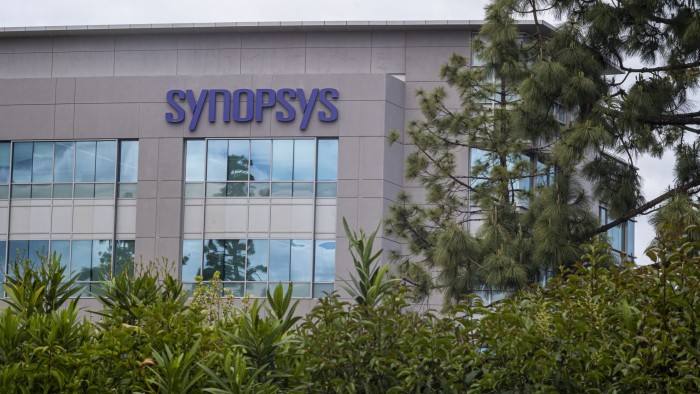China delays approval of $35bn US chip merger amid Trump’s trade war

Unlock the Editor’s Digest for free
Roula Khalaf, Editor of the FT, selects her favourite stories in this weekly newsletter.
A $35bn US semiconductor industry merger is being delayed by Beijing’s antitrust regulator, after Donald Trump tightened chip export controls against China in a move that exacerbated trade tensions between the world’s two largest economies.
China’s State Administration for Market Regulation has postponed its approval of the proposed deal between Synopsys, a maker of chip design tools, and engineering software developer Ansys, according to two people with knowledge of the matter.
The transaction between the American groups, which has received the blessing of authorities in the US and Europe, had already entered the last stage of SAMR’s approval process and was expected to be completed by the end of this month, said the people.
The delay comes as Washington moved to ban chip design software sales by US companies, including Synopsys, to China in late May. That decision has contributed to the complexity of China’s approval process for this deal, according to a person with knowledge of the situation.
The person added that approval, while taking longer than expected, could still come through if Synopsys were able to submit solutions that addressed the Chinese regulator’s concerns.
However, another person with knowledge of the matter said SAMR’s approval process had recently been prolonged from its original 180-day schedule due to the complexity of the deal itself, rather than being directly linked with the ongoing trade war.
On the company’s latest earnings call on May 28, Synopsys chief executive Sassine Ghazi said the company was “working cooperatively and actively negotiating with SAMR to secure China regulatory clearance”, and that it expected to close the deal “in the first half of this year”.
The deal agreement includes a January 15 2026 “drop dead clause”, according to company filings.
Synopsys declined to comment. Ansys did not respond to a request for comment. A call made to SAMR outside regular working hours was not answered.
The move comes amid US-China trade talks. This week, Trump said the two sides had reached an agreement in London to reinstate the trade war truce reached in Geneva in May, when the US and China significantly cut the high level of tariffs they had imposed on each other.
A senior White House official said this week that Trump could ease controls on technology exports to China if Beijing agreed to speed up shipments of rare earths.
There have also been signs of a potential loosening of the US ban on selling chip design tools. Synopsys, which earlier stopped all sales to Chinese clients, has restarted selling intellectual property and hardware, while so-called electronic design automation-related software tools are still restricted, according to a person with direct knowledge of the matter.
Silicon Valley-based Synopsys’s tools and intellectual property are used by chipmakers including Nvidia and Intel to help design and test their processors.
The semiconductor designer has grown in recent years as Big Tech companies including Microsoft, Google, Meta and Amazon strive to create more of their own chips, in particular to handle artificial intelligence systems in the cloud.
Ansys, which is based in Pennsylvania and has its origins in structural analysis tools, makes engineering simulation software used in industries from cars and construction to healthcare and defence.
Additional reporting by Michael Acton in San Francisco and Ivan Levingston in London




